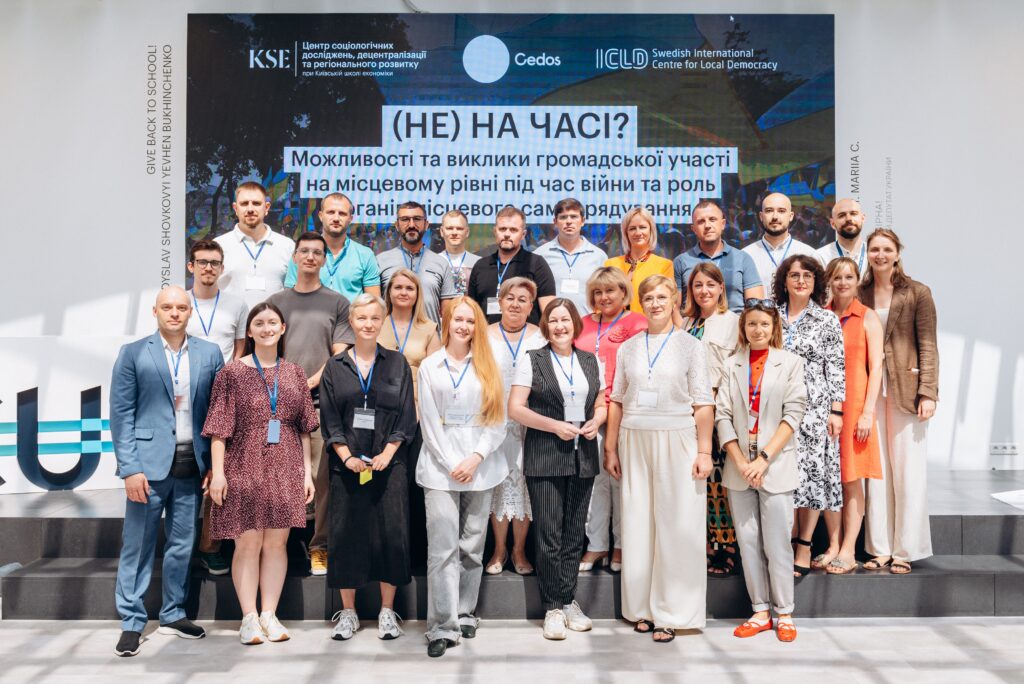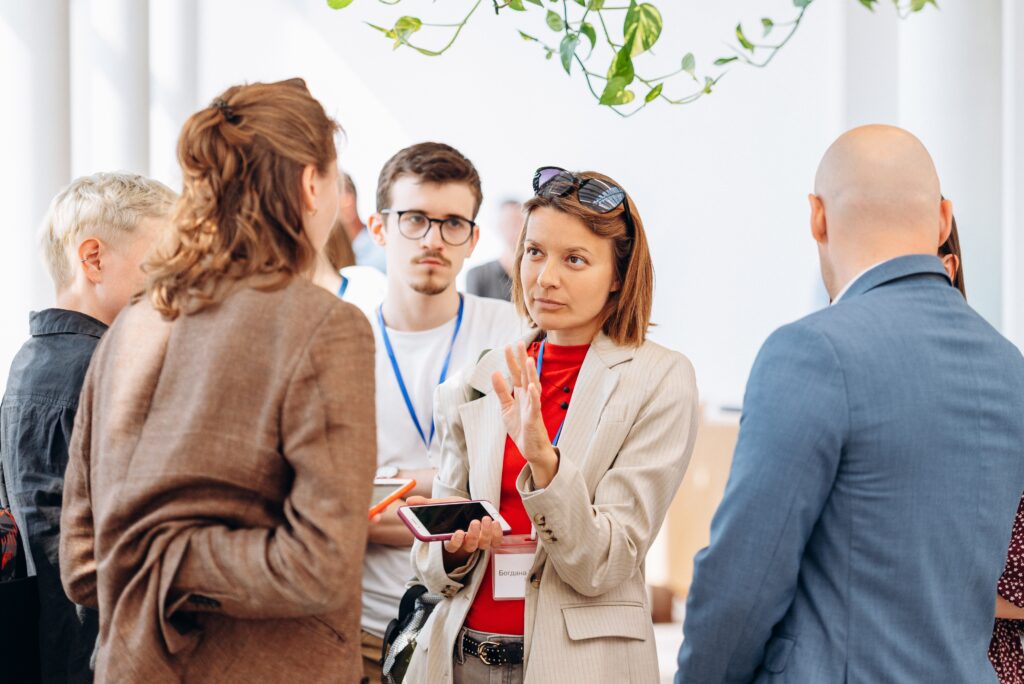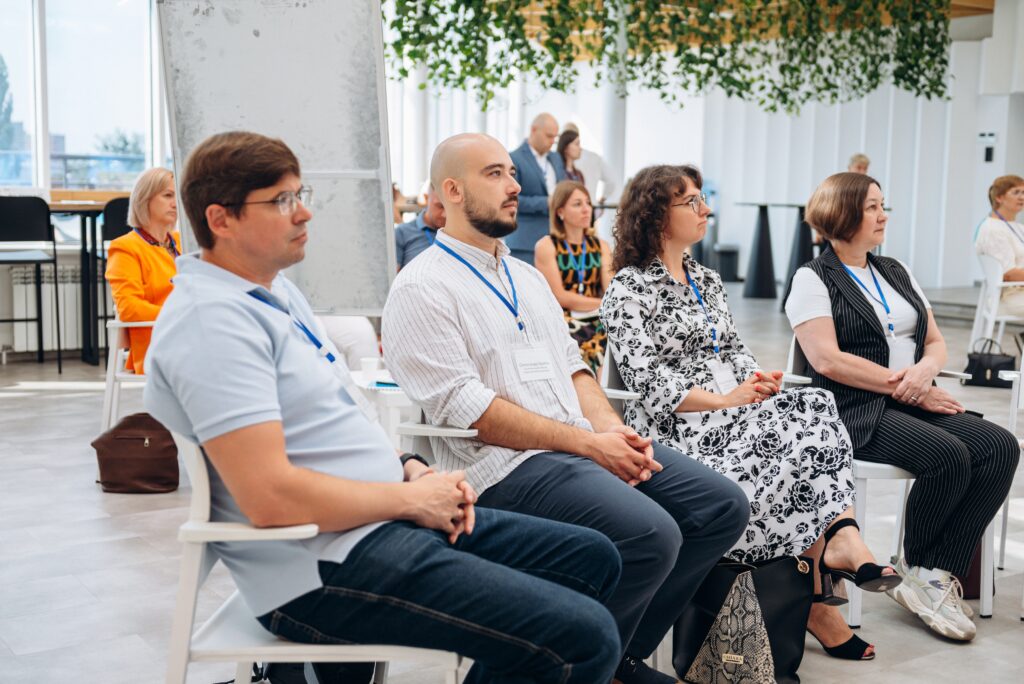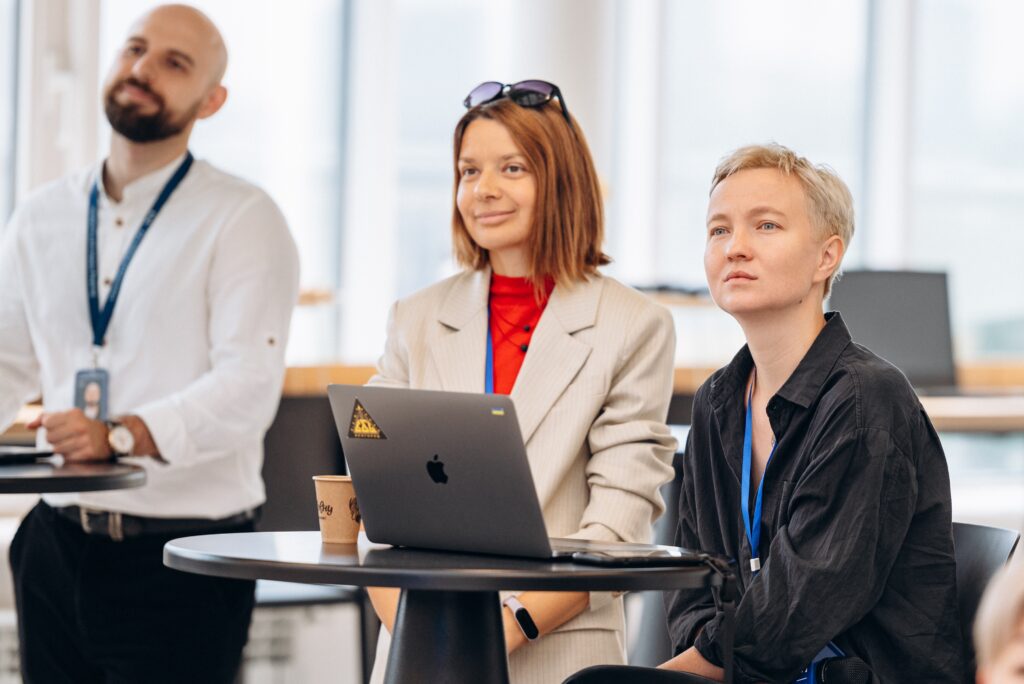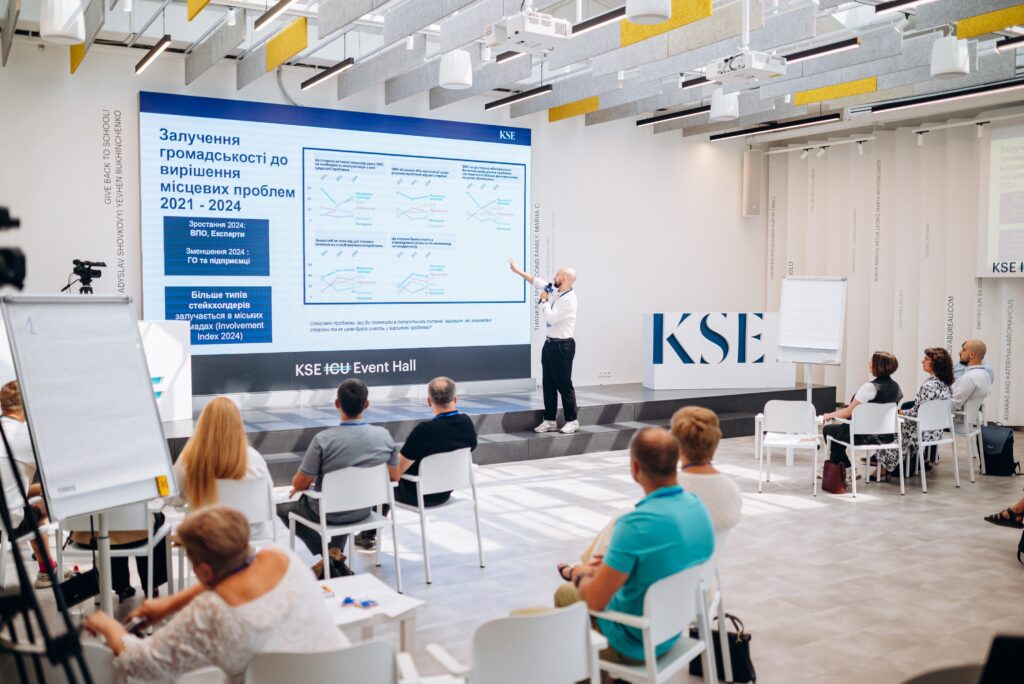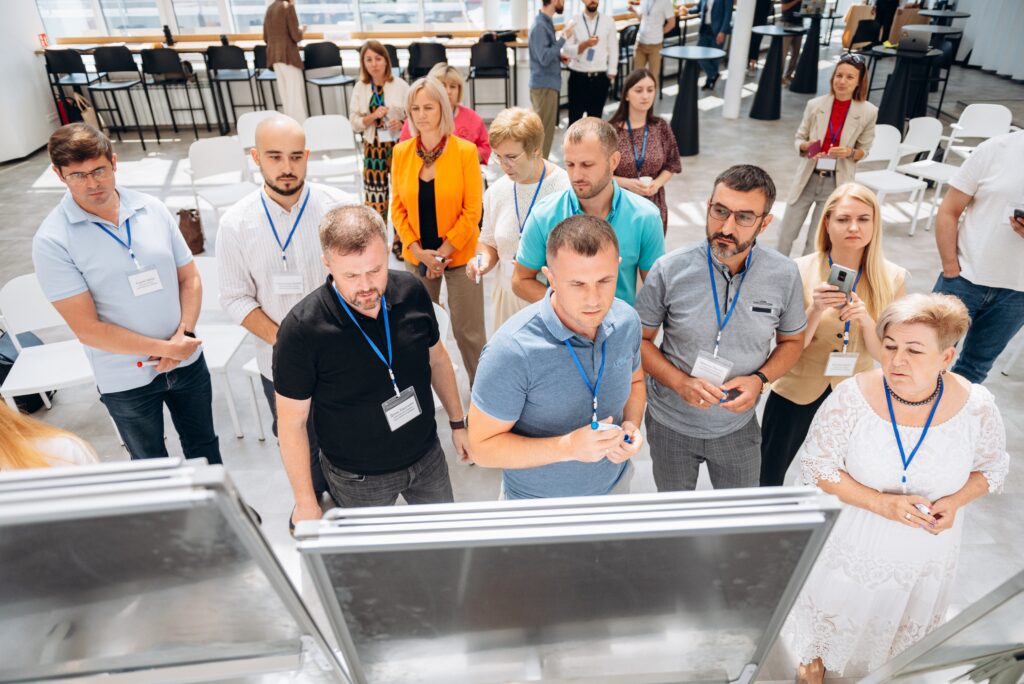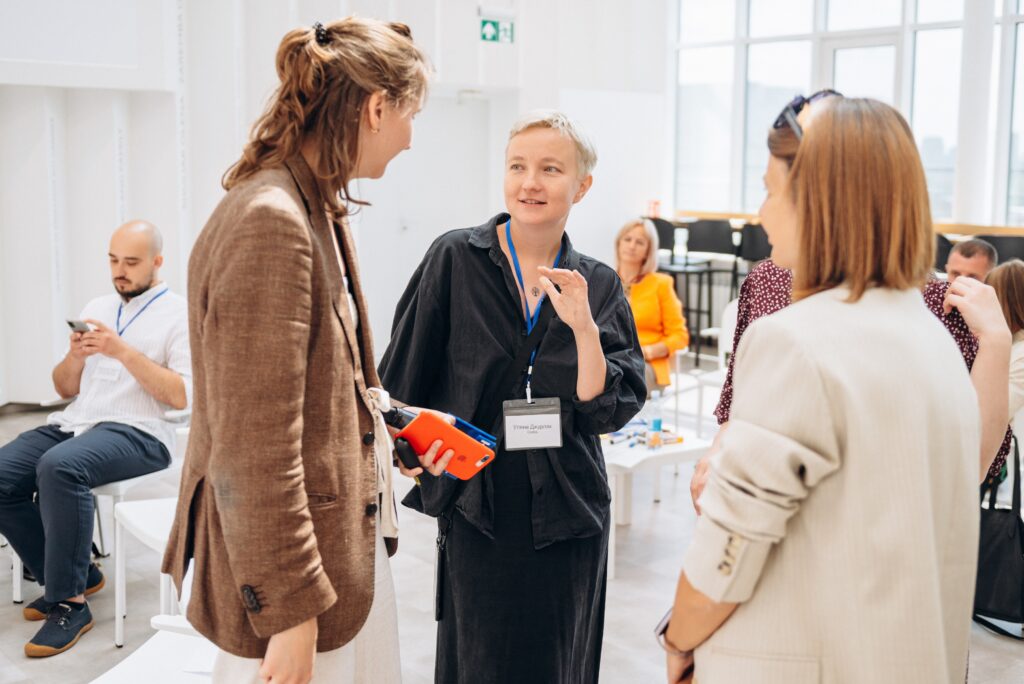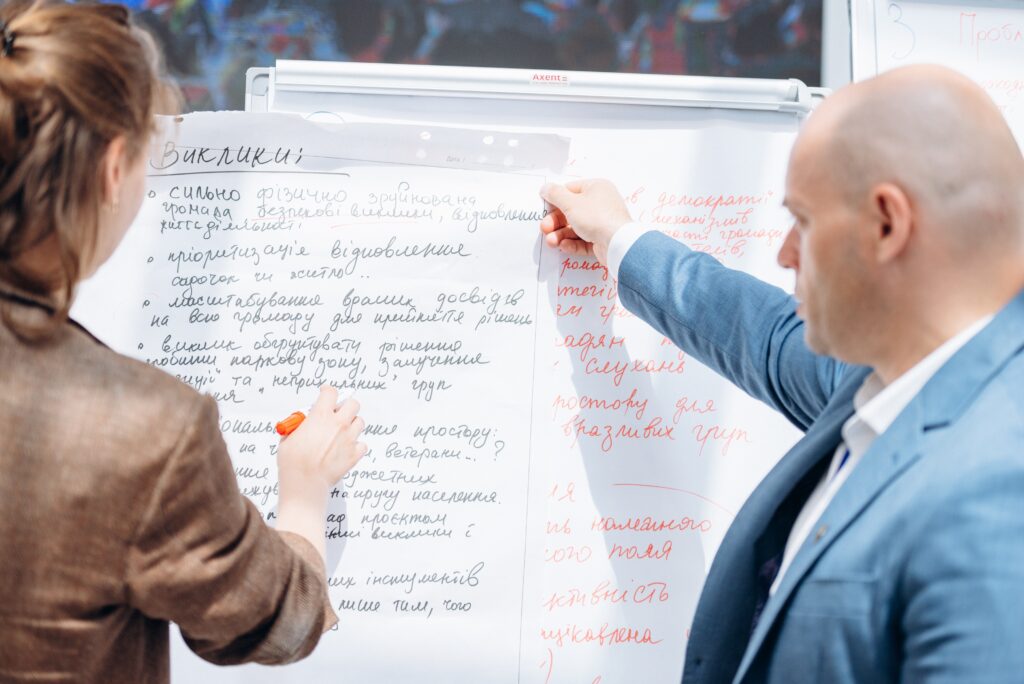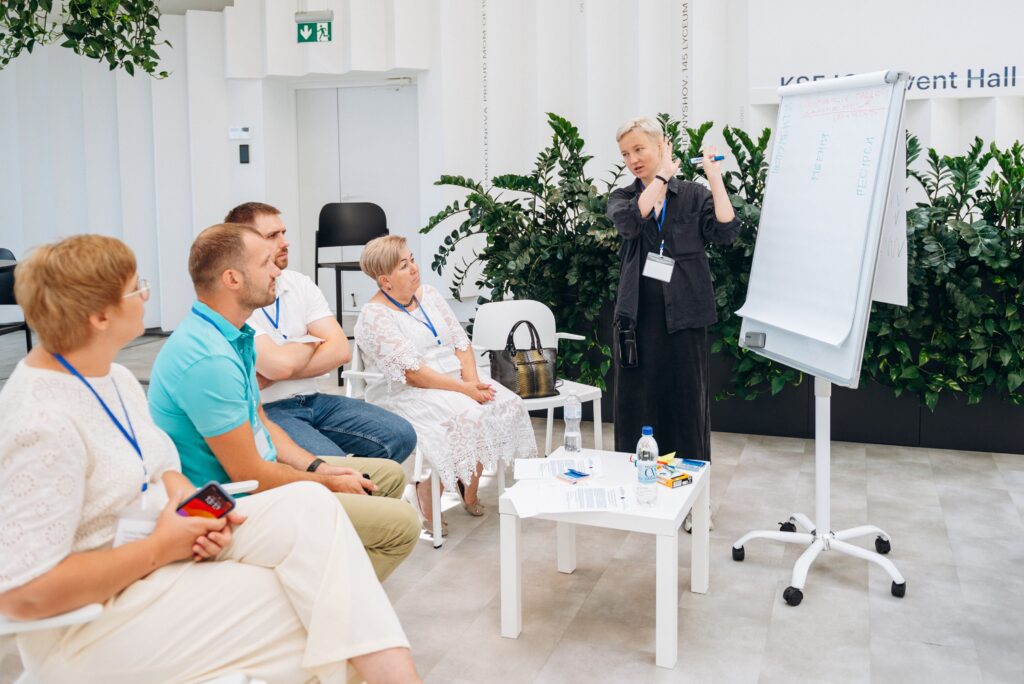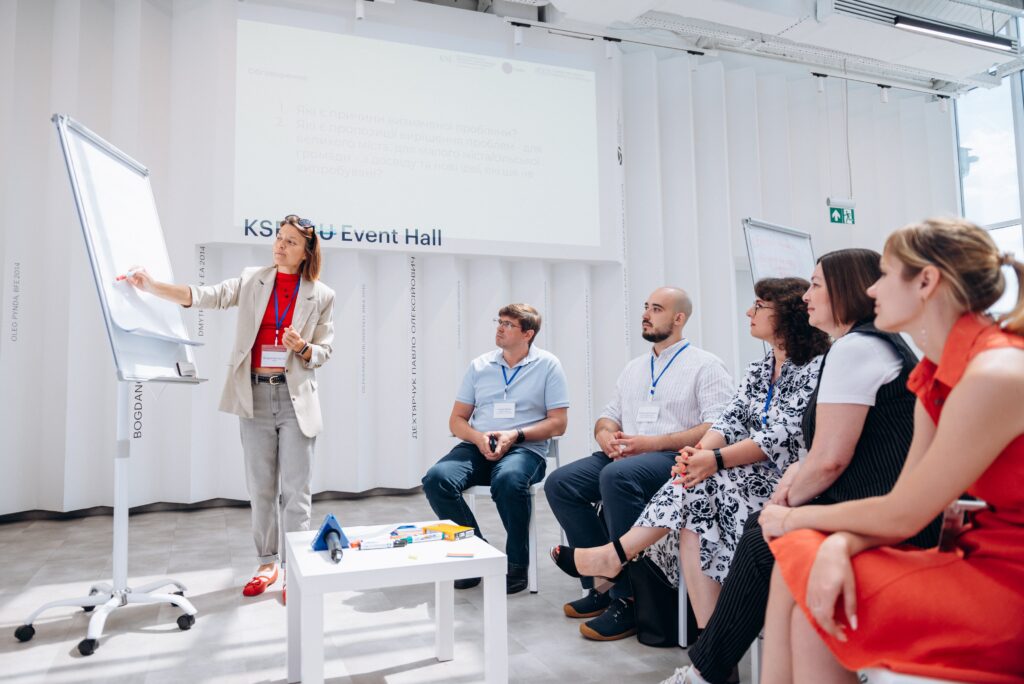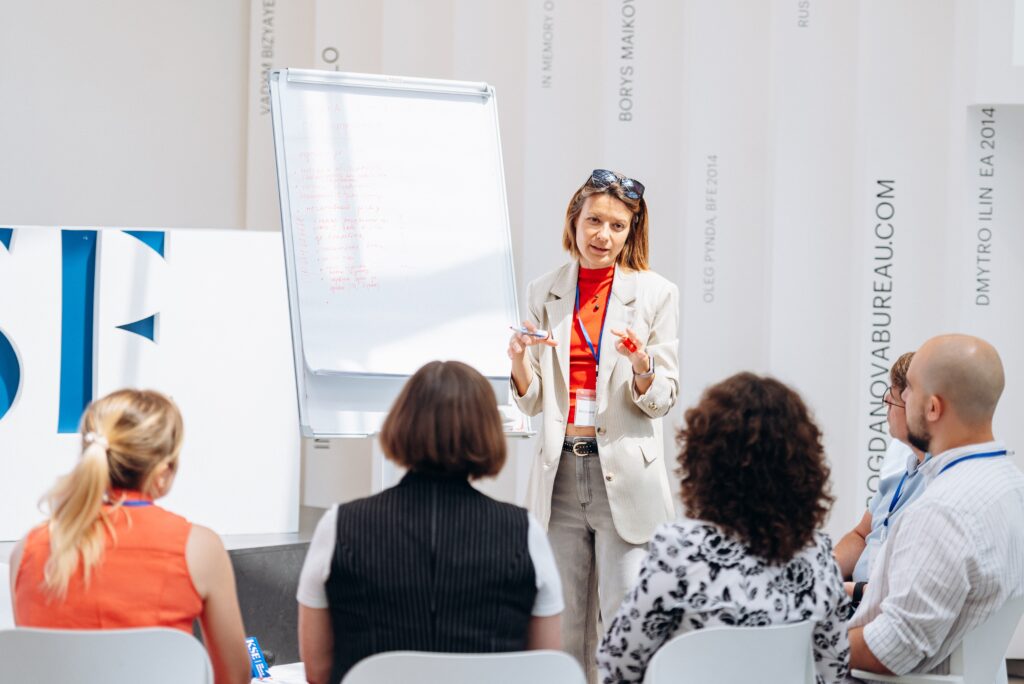On 1 August, Cedos and the Kyiv School of Economics (KSE) held an event “(Not) in time? Opportunities and Challenges of Public Participation at the Local Level during the War and the Role of Local Governments”, which was attended by representatives of 15 hromadas. Cedos experts Uliana Dzhurliak, Bohdana Beschastna and Volodymyr Kudelia participated in the event.
The event had an experimental format. Five hromadas — Shyrokivska, Fastivska, Makarivska, Chernihivska and Lutska — presented cases of public engagement, described the tools they use and the challenges they face. On the basis of these cases, the participants identified four key problems:
- Low awareness among residents
- Safety issues
- Politicisation of the engagement process
- Difficulties in involving different social groups
The examples of participatory approaches described by community representatives show that using only one tool is ineffective. To engage more constructively with residents, local authorities are introducing new approaches to engagement and using multiple tools.
For example, “Coffee with the Head” is a creative case of both reporting and receiving citizens, where the head of Shyrokivska municipality in Zaporizhzhia Oblast talks about his activities and listens to suggestions from residents over coffee.
Bogdana Beschastna, Cedos urbanist
In a “world café” format, participants discussed the causes and possible solutions to the problems identified, the participatory tools available and the possibilities of combining them. They also discussed the changes at local and national level that will motivate local authorities to use different tools. The main conclusions and examples of solutions for participatory approaches will be published in an policy brief.
Our group discussed the problem of politicisation in the process of community engagement, particularly in the interaction between military administrations, local authorities and the civil society sector.
One of the main conclusions was that engagement work is not sustainable due to changes in political leadership and political teams. The solution may be to train and strengthen the executive branch of government as the holder of institutional memory and the legacy of previous programmes and policies.
Uliana Dzhurliak, Cedos senior urbanist
The event was supported by Swedish International Centre for Local Democracy (ICLD) as part of the research project “Local Democracy and Resilience in Ukraine.”
Photos by KSE.
Also you can read the Cedos Guideline “How to Engage Residents in Decision Making in Hromadas: An Overview of Examples”. This guideline describes the theoretical and practical aspects of engaging residents in hromadas decision-making, as well as key studies and instruments.
Support Cedos
During the war in Ukraine, we collect and analyse data on its impact on Ukrainian society, especially housing, education, social protection, and migration





